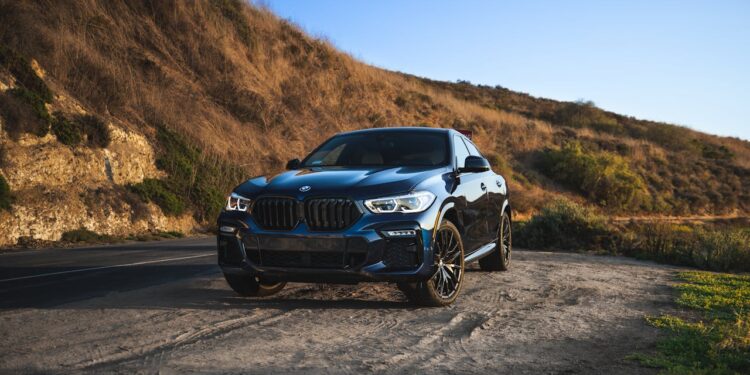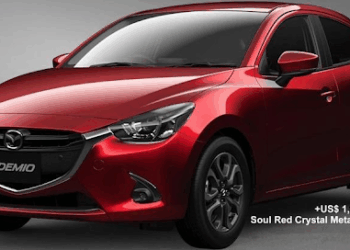When it comes to luxury vehicles, BMW is one of the first names that comes to mind. Known for its powerful engines, stylish design, and advanced driving features, the German automaker has earned a strong following globally, including in Kenya. But beyond the performance and prestige, one big question often arises—are BMW cars really reliable?
In this article, we take a closer look at BMW reliability from the perspective of Kenyan drivers. We’ll explore common reliability issues, how to care for a BMW in Kenya, and whether it’s worth investing in one. We’ll also guide you toward smarter decisions if you’re thinking of owning or maintaining a BMW locally.
What Does Car Reliability Really Mean?
Before diving into BMW specifically, it’s important to understand what reliability means in the car world. A reliable car is one that starts every time, has fewer unexpected repairs, runs efficiently, and doesn’t leave you stranded on the roadside. It’s not just about how long a car lasts—but also how well it performs over time, and how often it needs fixing.
For many Kenyan motorists, reliability is key, especially with fluctuating fuel prices, rough road conditions, and a rising cost of car parts.
Are BMWs Actually Reliable?
The Global Reputation
Globally, BMW has a mixed reputation when it comes to reliability. According to consumer reports and auto reliability studies, BMW often ranks somewhere in the middle of the pack. Models like the BMW 3 Series and BMW X3 have performed decently in long-term ownership surveys, while others have struggled with electronic or drivetrain issues.
Common Reliability Issues
BMWs are engineered with precision, but that also means they can be sensitive to poor maintenance or harsh conditions. Here are some common issues reported by BMW owners:
- High-maintenance engines – BMW engines require regular servicing with high-quality oil and components.
- Electronic glitches – Infotainment systems, iDrive controllers, and sensors can malfunction.
- Cooling system problems – Radiators and thermostats are known weak points, especially in older models.
- Oil leaks – Valve cover and oil pan gaskets often need replacement.
- Suspension wear – Due to Nairobi’s potholes and rural terrain, BMWs may suffer faster wear on control arms and bushings.
These issues aren’t necessarily deal-breakers, but they highlight the importance of proactive maintenance.
BMW Ownership in Kenya: A Realistic Perspective
Challenges of Owning a BMW in Kenya
Owning a BMW in Kenya can be both rewarding and challenging. The roads, climate, and fuel quality are not always ideal for such precision-tuned vehicles. Some challenges include:
- Cost of Spare Parts: BMW spare parts are generally more expensive than those of Japanese models. However, parts availability has improved in Nairobi and Mombasa.
- Specialised Mechanics: Not every garage can handle a BMW. Proper diagnostics and skilled technicians are a must.
- Fuel Consumption: Some BMWs are thirsty—especially older models with big engines or turbochargers.
Why Some Kenyans Still Choose BMW
Despite these concerns, BMW remains a popular choice among Kenyan motorists seeking luxury and performance. Many used BMWs in Kenya—especially models like the 318i, 520i, and X1—offer an affordable entry into the premium car space.
To find second-hand BMW cars suitable for Kenyan road conditions, check out auto24.co.ke. Models like the BMW X1 and 3 Series regularly appear there, offering decent value if inspected well and maintained properly.
Making Your BMW More Reliable: Maintenance Tips for Kenyan Roads
If you already own—or are considering buying—a BMW in Kenya, here are practical tips to boost its reliability:
1. Stick to the Service Schedule
BMWs are not forgiving when neglected. Always follow the recommended service intervals, and don’t delay engine oil, brake fluid, or coolant changes.
2. Use Quality Fuel and Fluids
Avoid low-grade fuel and cheap oil. Stick to premium unleaded petrol and synthetic motor oils. This reduces engine knocking and prevents buildup in vital components.
3. Inspect the Cooling System Regularly
Overheating is a major risk in Kenya’s hot climate. Flush the radiator periodically, replace coolant, and inspect hoses for leaks or wear.
4. Upgrade Your Suspension
For rough roads, consider beefier aftermarket shocks and bushings. The standard BMW suspension isn’t built for heavy potholes or rural terrain.
5. Use a Trusted Mechanic
Find a specialist garage familiar with BMW diagnostics. Look for ones equipped with BMW-compatible OBD scanners and access to genuine parts.
6. Keep the Electronics Dry and Clean
BMWs are sensitive to electrical faults. Ensure the battery is properly mounted, terminals are clean, and avoid water entering the engine bay or under-dashboard electronics.
Are Used BMWs a Smart Buy in Kenya?
They can be—if you do your homework. While new BMWs can be pricey, the used car market in Kenya is full of options under Ksh 2 million. Vehicles like the BMW 116i hatchback or 320i sedan can be good city cars if they come with a full-service history.
When buying a used BMW, always:
- Run a full diagnostic scan
- Check for accident history
- Ask for service records
- Get a mechanic’s inspection before payment
Want more options? See what’s available at auto24.co.ke, where various BMW listings allow side-by-side comparison and pricing for Kenyan buyers.
Should You Buy a BMW in Kenya?
Yes—If You’re Ready for the Responsibility
BMW cars are not unreliable by design, but they demand care. If you’re the type who loves precision driving, premium interiors, and is willing to invest in proper maintenance, a BMW can be a deeply satisfying vehicle.
No—If You Want Simple, Budget-Friendly Ownership
If reliability to you means “fuel-efficient, easy to fix, and parts available everywhere,” then Japanese options like Toyota or Mazda might suit you better.
Looking for budget-friendly yet reliable options? Read our guide to the 7 best used cars under Ksh 1 million here.
Final Verdict: BMW Reliability Depends on You
In short, BMWs are only as reliable as their maintenance. They’re finely-tuned machines that thrive when treated right—but struggle if neglected. For Kenyan roads, owning a BMW is a commitment. If you’re up for it, you’ll enjoy a great driving experience.
But if you’re seeking low-stress car ownership, a simpler vehicle might serve you better. Either way, making informed decisions—especially with used vehicles—can save you from unexpected costs and frustrations.
For more car tips, travel guides, and auto news tailored for Kenyan roads and lifestyles, be sure to visit Automag Kenya.




